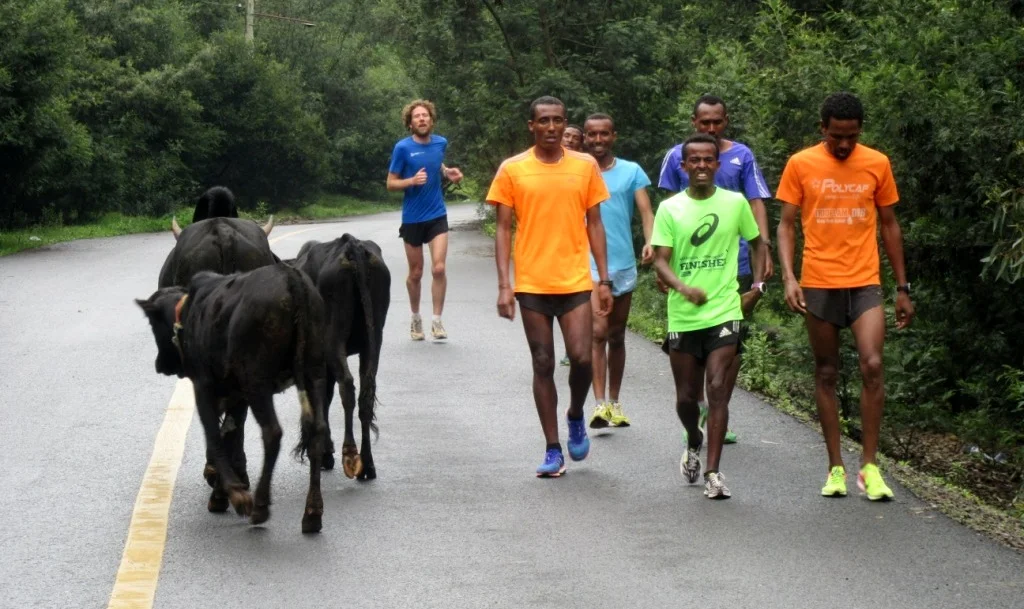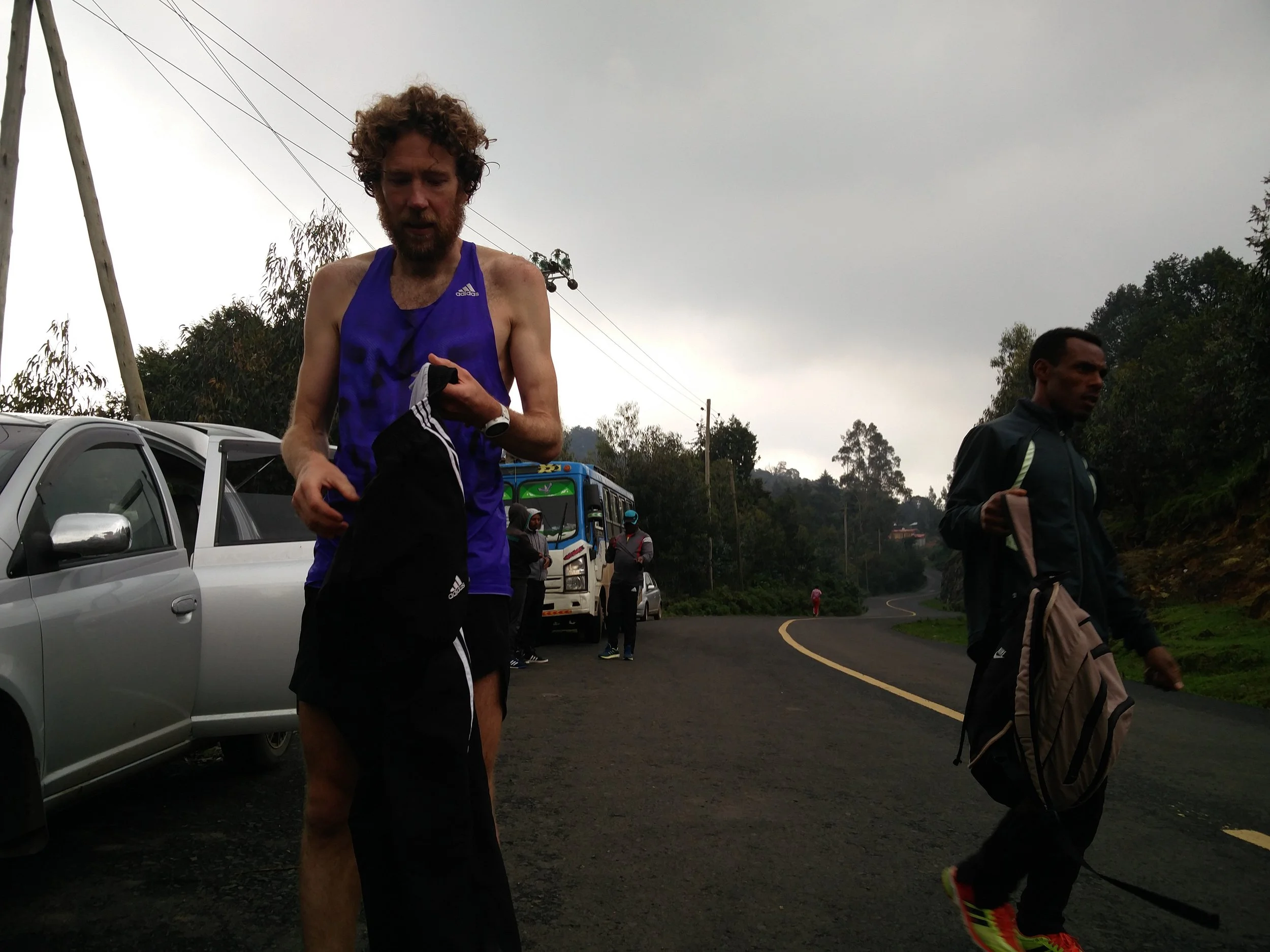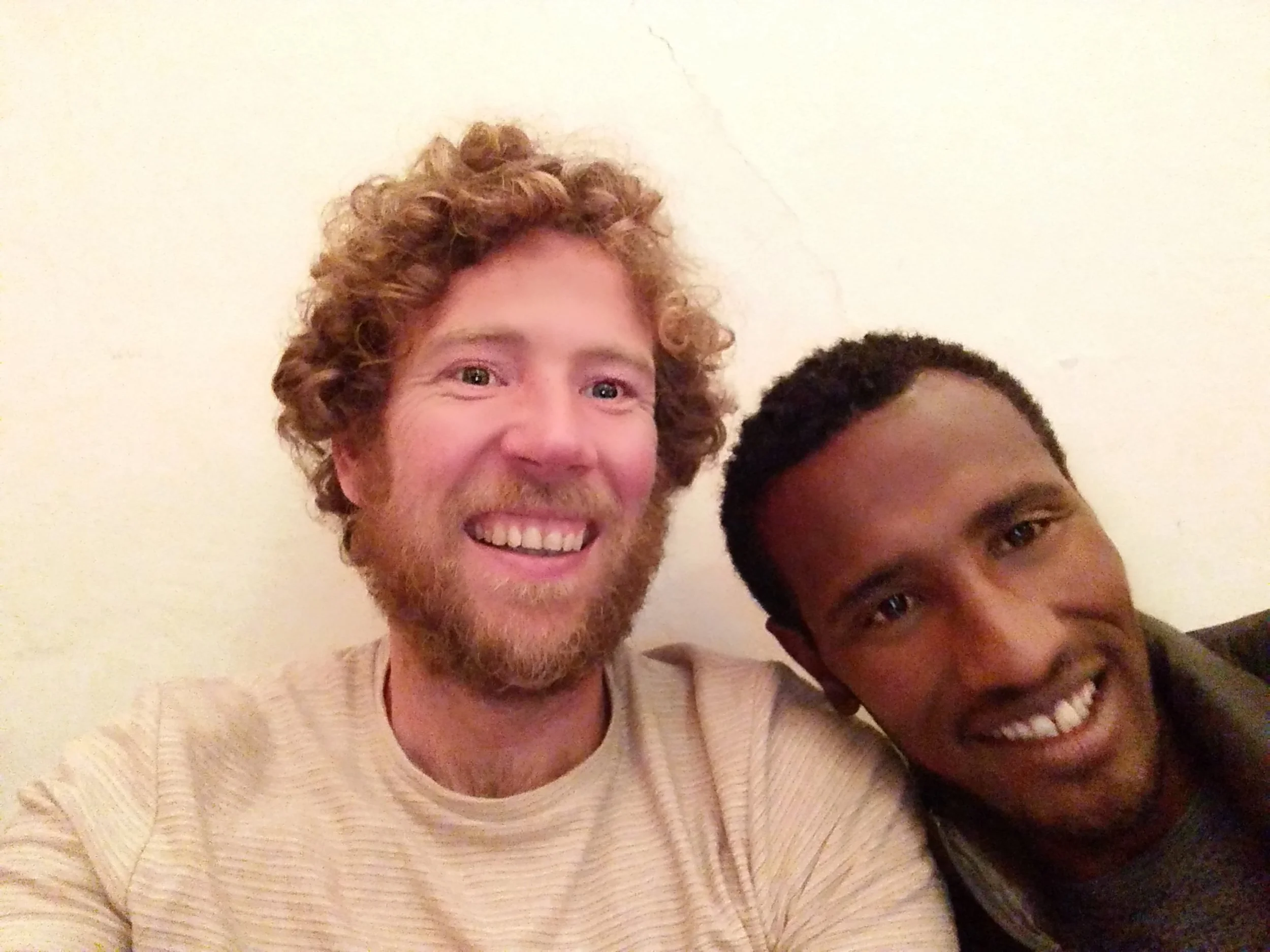What's it Like to Train at Altitude? Thoughts on an Ethiopian Training Trip
I recently went to Addis Ababa on a training trip. It was a really interesting trip giving me a real insight into the mentality, training habits and lives of these fantastically talented East Africans.
I stayed in Kotebe with Ed and Rekik from Run Africa. They run a Team in Addis, with a training group of around 40 local athletes coached by legendary Coach Negashe, Ethiopia's former national team coach. As well as offering training and advice to the athletes, they prepare them for a life after running, offering vocational training and skill development opportunities. As a tourist on one of their bespoke altitude training trips you gain an experience of how these athletes live, training with the group at different locations across Addis.
It was a real opener for me. Here is what I learnt:
1. Focus on your body not the numbers.
Back in Europe there is an increasing trend to 'run by numbers'. We're focused on structure, training zones, GPS recordings and records. It's stressful. We plan our training months in advance, give ourselves very specific time targets and goals and spend ages worrying about missed sessions, slow splits and missed opportunities.
In Ethiopia runners get into 'condition' to run. There's little or no focus on splits, times or pace. When hill training with the group I noticed all athletes went for it on every single rep, regardless of fitness of form. It didn't matter if they didn't complete the session- the important thing was to push and compete not to tick off the session.
This attitude was pretty universal. I spoke to 2.05 Marathon runner, Sissay Lemma whose favourite speed session on a track was 10 x 1min hard, 1 min jog. He couldn't even remember how far he covered in 1min!
I do already try to get the runners I coach away from a reliance on stats and numbers and run by 'feel', but the ethiopian mindset is different- they feel unencumbered by any preconceived notions of how fast they should be running, they aren't afraid to fail.
2. Running needs to be flexible
The most important part of training for Ethiopian runners seemed to the act of the running itself not the nature of the run. They have a plan but it's flexible. This is partly a result of the climate (I stayed during running season. I've never seen rain like it!), and the terrain (it's hard to be too structured when running along rocky trails and mountain paths), but runners in Ethiopia appreciate the need to adapt and change and listen to their bodies. They also like running in groups and teams and therefore adapt their plans to the needs and sessions of their team mates.
The consistency of their routine over months and years is the most important factor - getting out for a run every morning at 6am is non-negotiable but the nature of the challenge each day might change.
3. Have faith in your plan and ability.
Failure isn't appear to be an option to these athletes. They are all convinced about their ability to run and improve- it's pretty infectious. I really enjoyed speaking to Sissay Lemma about how he prepares to run the Marathon. What stuck me was the certainty of his strategy. He plans every race on a 6 month cycle. For the first 2 months he does.... nothing at all. He then spends a month running alone in the forest before joining a group and running for a month at the back of the pack. The next two months he runs hard, culminating in 15 days of speed training before the big day. This is a pretty bold strategy- ignoring others, and taking his time. This enables him to peak at exactly the right time. I certainly could learn from this- trust your plan!
Having said this, there is something sad about the running scene in Ethiopia. I met hundreds of runners out on the trails during my two week stint and the vast majority were full time athletes. Most of them are forgoing other opportunities in the hope that an agent will spot them and give them a chance to race abroad. But it's tough and only a handful of these runners will ever get that chance. For some running is all they know and they find it difficult to give up the dream.
The Run Africa team attempt to address this- offering their runners employment opportunities, and vocational courses to help them expand their skills to prepare for a life away from running. I would highly recommend a visit out to Addis to stay with them.




Head Coach Shaun Dixo spent 2 weeks training with Run Africa. Here's a short video and blog about his experiences.